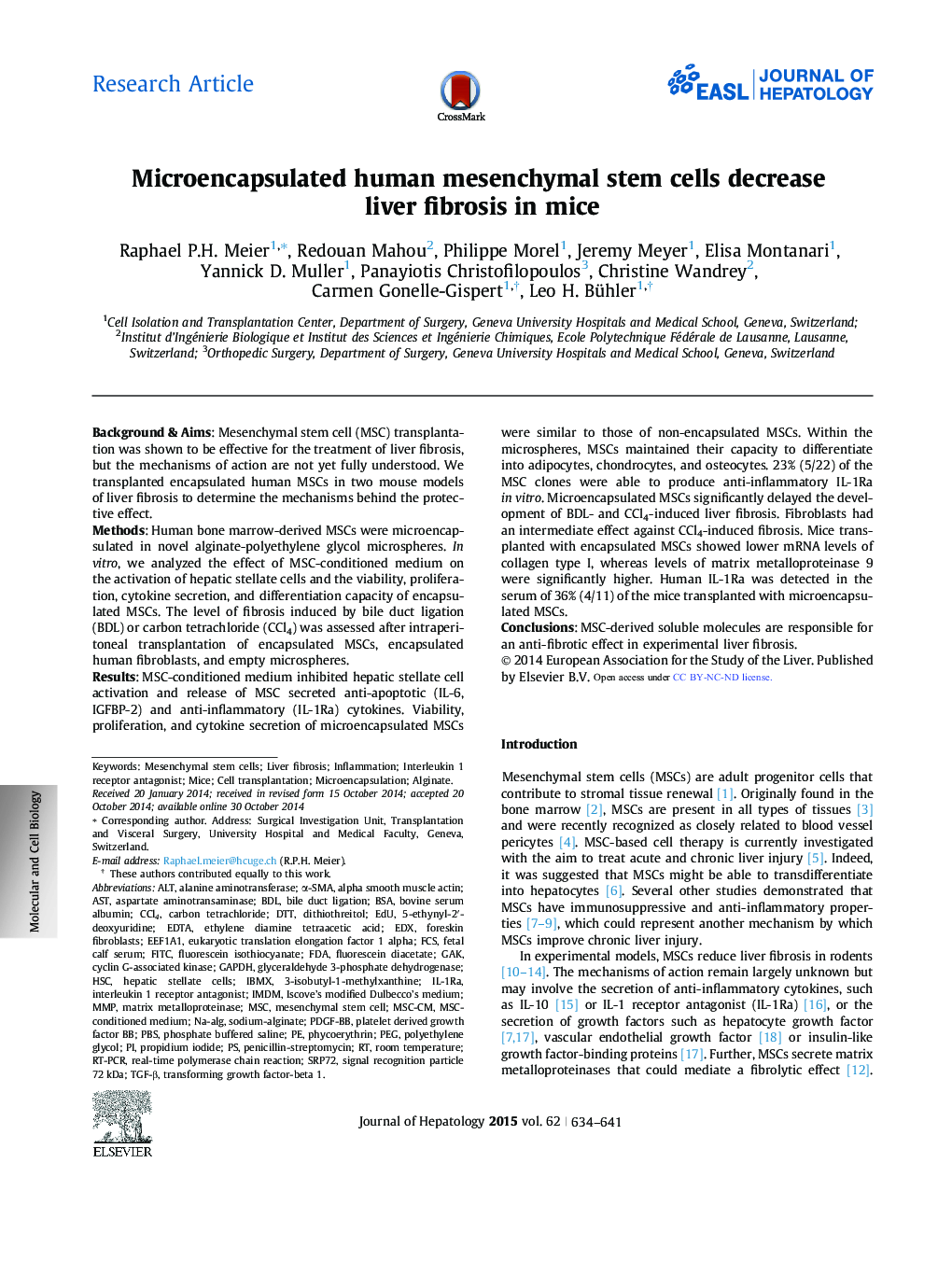| کد مقاله | کد نشریه | سال انتشار | مقاله انگلیسی | نسخه تمام متن |
|---|---|---|---|---|
| 6102045 | 1211112 | 2015 | 8 صفحه PDF | دانلود رایگان |
Background & AimsMesenchymal stem cell (MSC) transplantation was shown to be effective for the treatment of liver fibrosis, but the mechanisms of action are not yet fully understood. We transplanted encapsulated human MSCs in two mouse models of liver fibrosis to determine the mechanisms behind the protective effect.MethodsHuman bone marrow-derived MSCs were microencapsulated in novel alginate-polyethylene glycol microspheres. In vitro, we analyzed the effect of MSC-conditioned medium on the activation of hepatic stellate cells and the viability, proliferation, cytokine secretion, and differentiation capacity of encapsulated MSCs. The level of fibrosis induced by bile duct ligation (BDL) or carbon tetrachloride (CCl4) was assessed after intraperitoneal transplantation of encapsulated MSCs, encapsulated human fibroblasts, and empty microspheres.ResultsMSC-conditioned medium inhibited hepatic stellate cell activation and release of MSC secreted anti-apoptotic (IL-6, IGFBP-2) and anti-inflammatory (IL-1Ra) cytokines. Viability, proliferation, and cytokine secretion of microencapsulated MSCs were similar to those of non-encapsulated MSCs. Within the microspheres, MSCs maintained their capacity to differentiate into adipocytes, chondrocytes, and osteocytes. 23% (5/22) of the MSC clones were able to produce anti-inflammatory IL-1Ra in vitro. Microencapsulated MSCs significantly delayed the development of BDL- and CCl4-induced liver fibrosis. Fibroblasts had an intermediate effect against CCl4-induced fibrosis. Mice transplanted with encapsulated MSCs showed lower mRNA levels of collagen type I, whereas levels of matrix metalloproteinase 9 were significantly higher. Human IL-1Ra was detected in the serum of 36% (4/11) of the mice transplanted with microencapsulated MSCs.ConclusionsMSC-derived soluble molecules are responsible for an anti-fibrotic effect in experimental liver fibrosis.
226
Journal: Journal of Hepatology - Volume 62, Issue 3, March 2015, Pages 634-641
